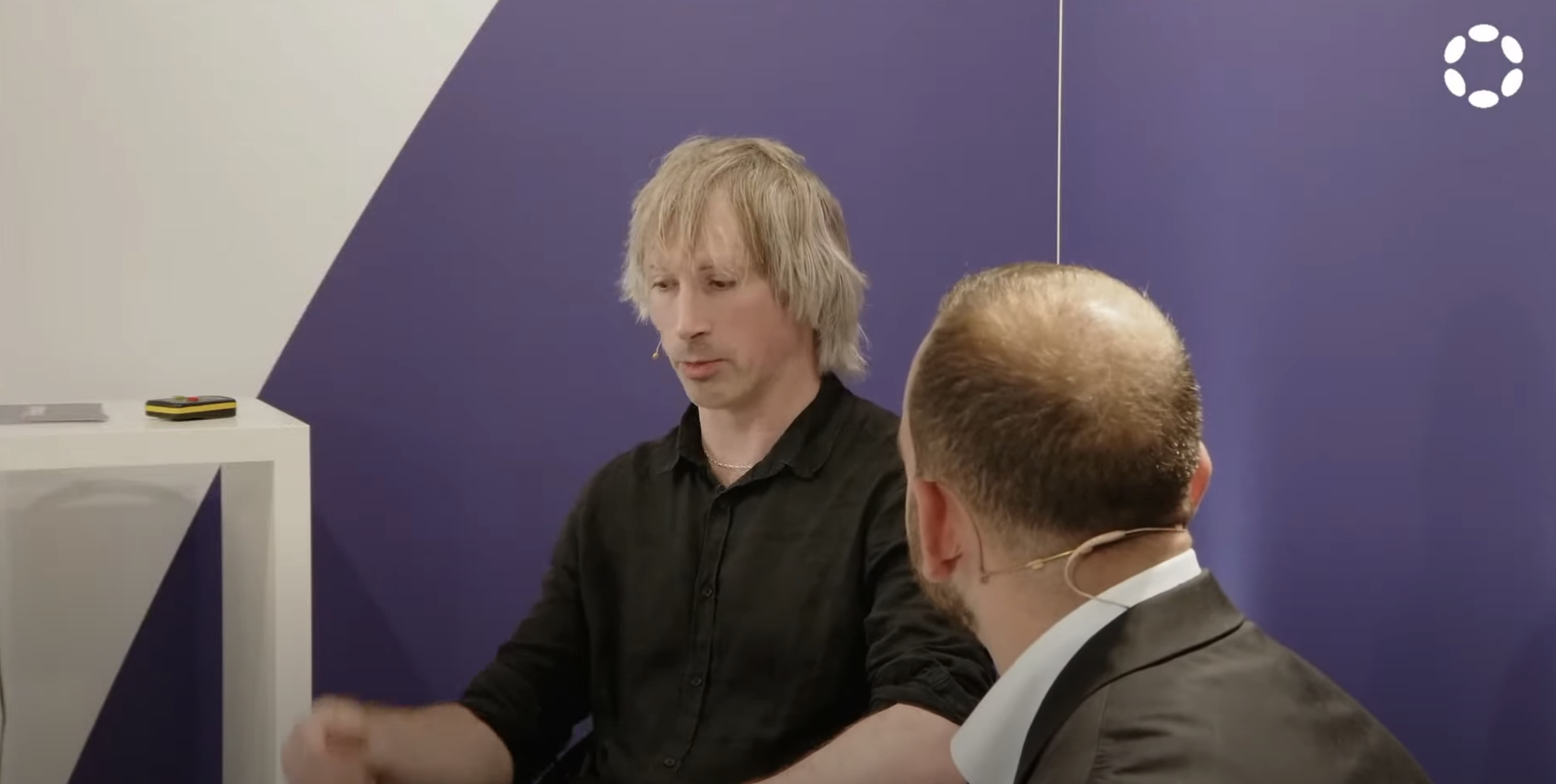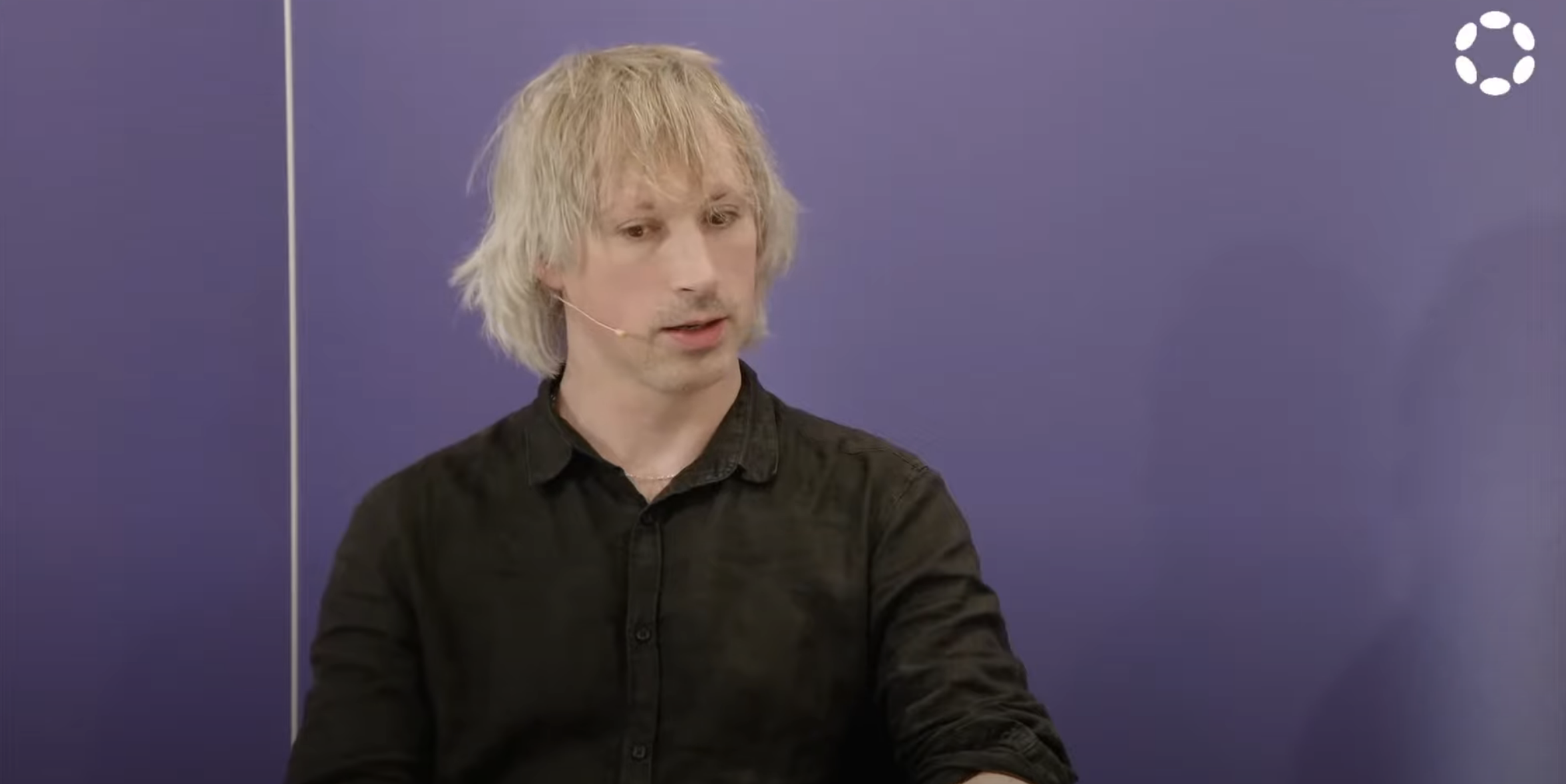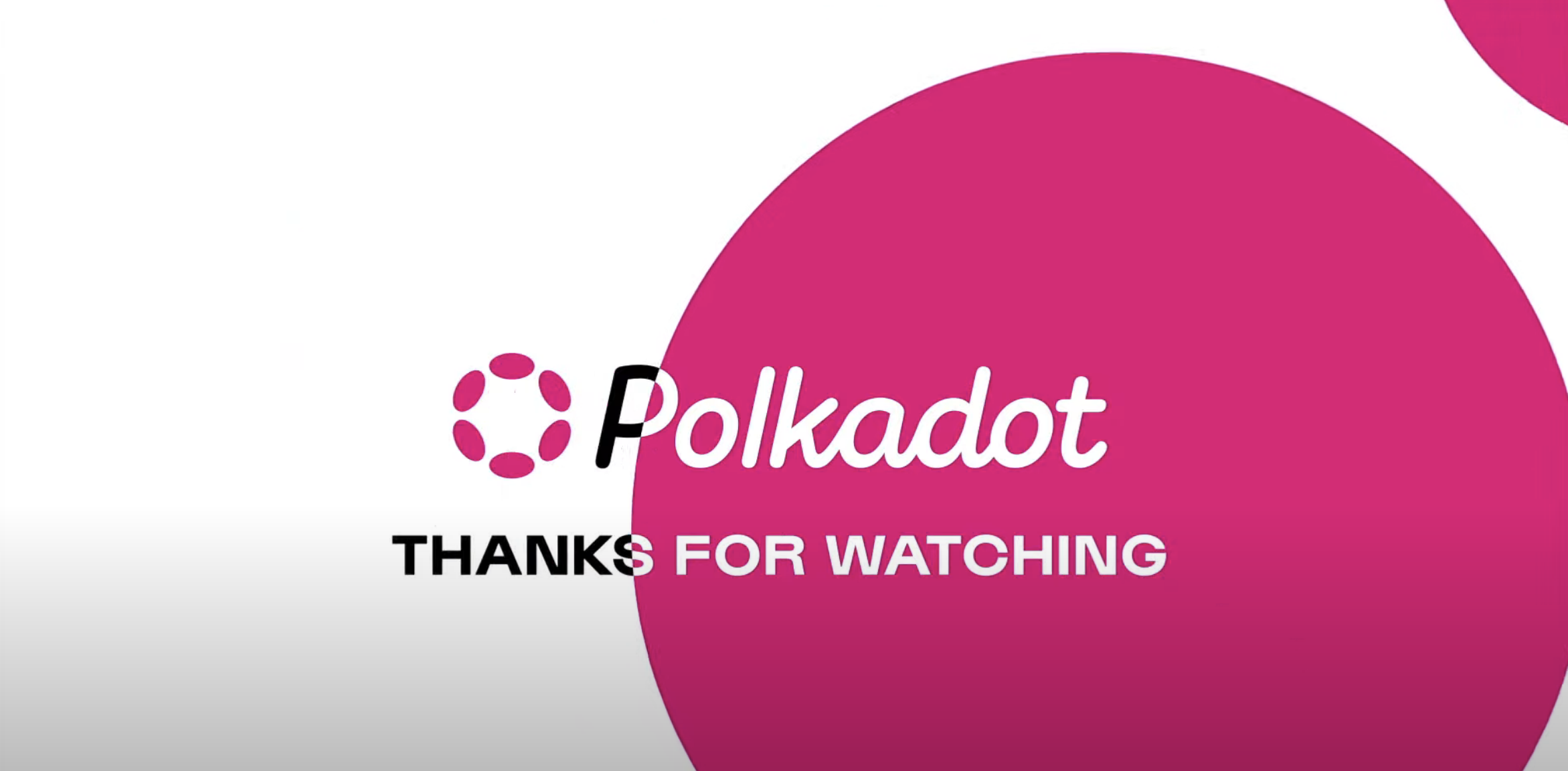A summary of Gavin Wood's interview in Davos 2022
Original interview by the Big Technology Podcast: https://www.youtube.com/watch?v=_5l9wjA6N_c
Background
Gavin was motivated to participate in blockchain because he began to notice how social contracts to society were not being honored by authorities such as government and other central entities. He feels that it's unfortunate we live in a society that we have on the face ethics, statutes, and freedoms, but behind the curtain it's not as it seems.
Over the last 10 years, where Gavin once began in a "trust neutral stance" where he accepted that he needed to trust certain entities, and that they would honor contracts, he's moved into a place where he wants to focus on building tools where trust is not needed.
He is a technologist, and not a politician, and he even believes that politics may not be the right approach to real change as, no matter what, even if there are good and honest people, you can't trust everyone and someone will betray trust.
Instead, it's better to create systems where trust is not needed, and unfortunately, technology as it is now especially with the internet and web2 has facilitated certain problems to exist.
Most communication technology encourages the consolidation of power, on a scale never seen before (ie Google and Facebook). Decentralization is ultimately the reduction of power any one party has over the entire system. It's not necessarily the absense of any centralization.
Most systems are heirarchical, top down structures, and decentralization removes the need for this.
Gavin is at Davos, a place where many might disagree with models of decentralization, because he believes that Web 3 is important, and there are open minded people there where, with the right education, its value can be made clear even if they ultimately disagree.
ETH is a place where you can program on the blockchain. Where many people don't understand its utility, it would be comparing home computers in the 80s to where they are now, with better power, connectivity, and accessibility.
That said, there's still a gap in terms of higher level elements such as software, services and integrations.
Gavin believes that there's an education problem as much as a technological problem. Similar to when people didn't know what the internet was, people couldn't see the advantages of the internet at that stage.
The advantages of Web 3 is that blockchain applies encryption and game theory to contracts. It's trust free computing. Blockchain as a whole is a transparent system.
In the old days, we didn't have encryption by default on the internet. Now it's expected to some extent, as the issues arise. Web 3 is asking the question of just how far we can take encryption.
In terms of Bitcoiners and web 3, and the divide between them, Gavin can only attribute the divide to tribalism as many of the ethos is the same.
Gavin believes that if you don't have choice, then you don't have power. If you only must trust an entity, then you have no power. That's the point of his technology.
People should be given responsibility for their own choices.
We should be able to make our own decisinos based on current and relevant information. With the services being offered now, because of the lack of transparency and protection, and the need for trust, we can't inform ourselves and therefore make our own decisions well.
On Social Media
Social media suffers from many of the above problems. Most social media survives off of the network effect, and centralized control which has largely been demonstrated as incompetent.
The current problem is the same problem with all communication architecture. We as decision making individuals can be manipulated.
He's working in partnership with a framework looking to create a social graph, a stack of technologies, a general social networking protocol with Polkadot as the underlying framework.
It's a little abstract in concept, but the problem with social media competitors is that you have to onboard people already stuck in the network effect that gives the platform power.
Instead, by creating a social graph of data where any social network could plug into and use, that would allow people to onboard seamlessly.
In this situation, the user would have all their information on this social graph, and it would be kept private on their side (The need for private data on blockchain, unfortunately, often centralizes the information stream as a result, so having the user control their data, and encrypt it first on their end before sharing, would prevent this from becoming an issue).
Only encrypted permissions exists on the blockchain that the user would be in total control of distributing to social media platforms.
In other words, the user could decide which information is shared with which parties, knowing that 3rd parties would not be able to access that information without their permission.
The blockchain would be the permissioning infrastructure, but the data is mostly offchain.
A Graph is just nodes and connections. Each social platform could choose and create algorithms that they like. Not all will use underlying data the same way, but the connections are there.
In the current environment, essentially the same basic data needs to be entered in each application a user uses, and they don't know what that data will be used for or where it will go. This would solve all those issues.
If people can trust that entering data isn't by default giving to a 3rd party to inspect it, then they are in a much better position and Gavin believes that people would be more willing to give complete informatian.
This is not perfect privacy, Gavin wanted to clarify. Someone could always take a picture of something on a screen, for instance, and breach privacy that way. But it can give credible expectations of privacy.
We can't trust the other services right now. How many people would say they trust Mark Zukerberg?
In this system, no single individual can gain unauthorized access and see the information. The algorithms can be agreed on by the masses as a collective decision based on the use-case of the platform.
The only reason people haven't left the current systems is that they are held by the network effect, and not because the tech is so amazing. A service is being used because people think they can't live without it, like nicotine.
It's ultimately democracy destroying to have only 3-4 places forum is happening.
As for transaction fees, on Polkadot, through division of labor and scalable, decentralized, security architecture (which has taken 4 years of heavy labor of large teams to engineer), there will be orders of magnitude better scaling available on Polkadot.
In the future, programs will still be programs, but the APIs will be different, and the things you are building will be different. Peer to Peer will mean something different.
Acedemia hasn't caught on yet. This will change. Systems that are secure, and p2p, will be important.
Unfortunately, at present, even on Ethereum, 98% of it is still built around centralized entities, with a point of failure like Infura, still being fallen back on.
Hopefully this will be solved through light clients, and Polkadot is aiming at true decentralization.
And with the bear market, there are definitely silver linings. Things are being built. There's less nonsense, and it's easier to recruit talent who are interested in building real things.
KSM Tips can be sent to: D8WrK1jsFy9zpFwFZStaDTmX32pMZVdwXTm5rt9LsRKBQrz
KSM/DOT Enthusiast
My personal findings, thoughts, and rumor shares on Polkadot






0 comments